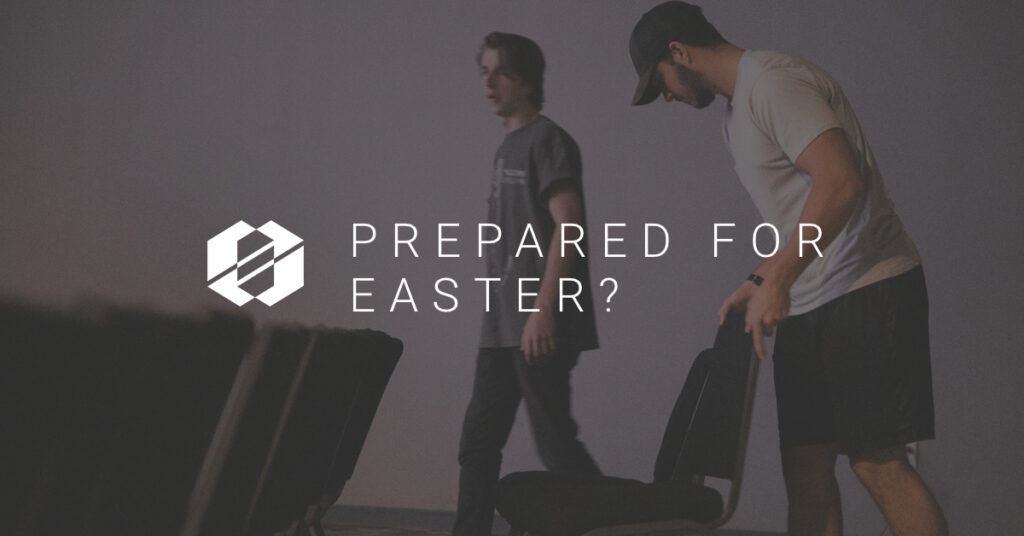I have spent a lot of time (over 4 years) working with a local portable church meeting in coffee shops, a high school auditoriums, and even a local bar/restaurant. We learned a lot over the years of what works and what doesn’t when it comes to portable churches. How many volunteers do you actually need to effectively run a portable church service? How much money do you spend on transportation, storage, gear, cases, and more? When do you find enough people to give your volunteers a break?
Below I have provided 6 portable church tips. These tips will hopefully help your team to think beyond just getting things done. Spend some time as a leadership team to think through these ideas and more to ensure you are operating efficiently and effectively so that you can serve your community well.
Tip #1: Cases for Your Equipment
As soon as you can, get cases for your equipment. (Here’s a great place to look at) These don’t need to necessarily be molded for each individual piece of gear you have, but need to have wheels and should create a safe and firm pack to keep items from being jostled around and breaking while in transit/storage.
Wheeled cases move quickly and easily. You’ll be able to save your back and the backs of your team while moving thousands of pounds of equipment around each and every week. We started out with only a couple of cases, and in full disclosure, our speakers never ended up in cases, but we had a two wheel dolly to move those. If your budget is limited, identify the key pieces of gear you need cases for…i.e. computers, monitors, projection equipment, lighting, consoles, etc. The investment will be well worth it in the long run.
Tip #2: Know Your Truck/Trailer Pack
When I was serving with a portable church in Nashville, we had a handful of folks who knew the exact order and placement of the trailer pack. This saves time, energy, and frustration for you and your volunteers. This savings will reflect directly to your congregation. A team that isn’t struggling with the backstage items is able to spend more time ministering and serving the congregation. Plus, this gives you more time to get out to the local Mexican restaurant to stock up on chips and queso!
Tip #3: Take Ownership in Your Space
Whether you’ve been in a space for a few weeks or a few years, it’s easy to take for granted the payments you’re making and the service you’re expecting from those payments. I worked in event management for the better part of ten years. We had numerous clients that left the venue trashed. However, there was one client (a major touring act) that continuously went above and beyond to leave the space better than they found it upon arrival. They didn’t have to do this; we had a large custodial staff fully prepared to help pout the venue back together. However, it was important for this client to leave us each time on the right note.
As you go into a space week after week, you’ll be tempted to get in and out as quickly as you can. “Cleaning is someone else’s job.” “We’re paying the venue for cleaning services.” “It was there when we got here.” Don’t fall into these traps. Take ownership of your space and create an atmosphere that shows how much you care not only about your congregation, but those you serve in front of or next to. You never know who’s watching and who will be impacted by the care you take in someone else’s space. We had an amazing relationship with the restaurant we were at because we took the time to care about the space, call it our own, and leave it better than we found it. Picking up trash, mopping up after someone else’s night of heavy drinking, or wiping down the bathroom stalls goes a long way towards being a witness in your space.
Tip #4: Train & Rotate Your Volunteers
The easiest way to lose folks is to burn them out. I spent the first 18 months running audio pretty much every week. I might have taken 2-3 Sundays off during that run. Fortunately I had bought into the vision of the church and wanted to be there. However, I was running myself ragged. It was also hard to relinquish control to others. (p.s. SALT University is a great training resource to help with training volunteers!)
As a leader, pastor, or volunteer coordinator, it is your responsibility to create an environment where people can serve. More than that, it’s your job to create an environment where your team can also learn, worship, and grow personally. Make sure that you have enough trained volunteers in each area to be able to effectively run those areas and reduce the chance of burnout for your volunteers. If you don’t have enough volunteers for that new idea, it’s better to hold off until you can do it right.
Tip #5: Everyone Helps Tear Down
From your children’s team, to parking, from your FOH audio tech to your pastoral staff, everyone helps tear down. The portable church is a hard gig. You never know how long it is going to last. We operated as a portable church for about 4 years, in 3 different locations. It was exhausting. 200+ Sunday’s of meeting early, staying late, and finding time to serve and minister. Those are the reasons that everyone helps tear down. You need to be in as a team.
Tip #6: Invest in Portable Signage
The first item out of your trailer in the morning should be your signage. This will accomplish a few different things. First, it’s not an after thought that gets forgotten or placed too late. Second, it helps new volunteers find your space quickly. Third, it showcases your church. From my experience, people are looking for what makes the church different. Showing hard work, a fun/team environment, and dedication can go a long way towards a new visitor walking through your door. We met in the back of a bar for about 2.5 years. It was different. Most Sundays it smelled bad in there. We mopped, swept, cleaned counter tops, and transformed the space from a bar to a church.
Bonus Tip:Cable Looms / Snakes
Cable looms or snakes are a great way to save time and keep things moving. Beyond just your audio snake, spend time grouping or looming any cables you can to save time on your setup. If you can save ten minutes of setup time then you can add ten minutes of rehearsal time, ministry time, or more.





